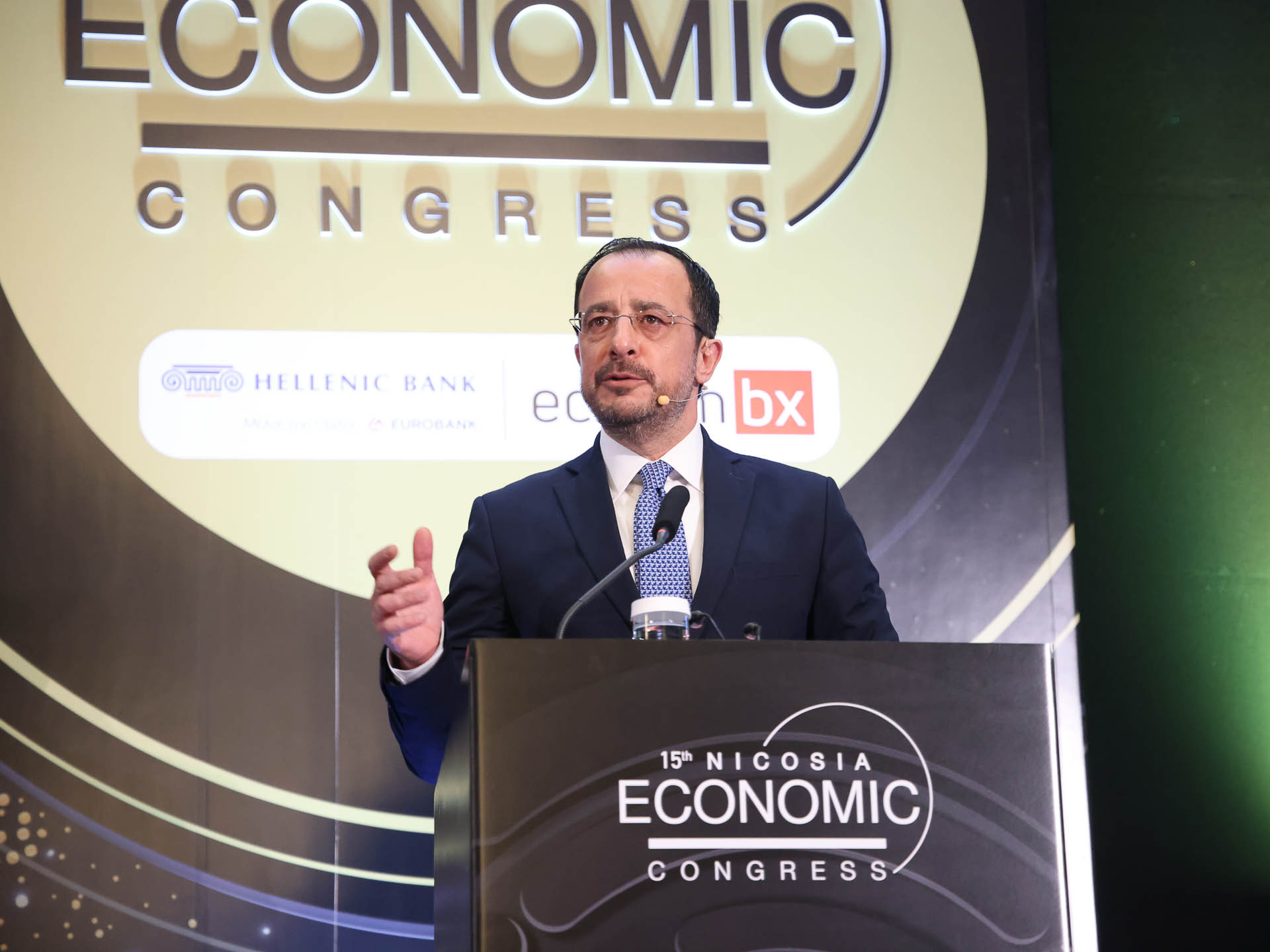Cyprus’ economic future is in the hands of a bold, tech-savvy generation, President Nikos Christodoulides declared on Tuesday at the Nicosia Economic Congress, which this year focused on the millennial workforce and their role in shaping innovation and growth.
Addressing a packed audience, Christodoulides praised the decision to dedicate the annual event to millennials.
“This generation is already leading in technology, entrepreneurship and social responsibility,” he said.
“We owe it to them to offer visionary policies and open dialogue.”
The president drew a contrast with his own generation, which he said grew up without social media or digital tools. However, he expressed admiration for how Tuesday’s younger professionals have adapted and thrived.
“They are not only shaping the present – they are defining the future,” he added.
This year’s forum comes as the global economy braces for new trade tariffs and increasing instability. Christodoulides warned that recent developments risk undermining the post-war global order built on free trade and cooperation.
“No country can stand idle,” he said.
“Even Cyprus, small as it may be, is not shielded from these changes. Our stability and prosperity depend on our ability to adapt and compete.”
The president defended his administration’s fiscal prudence over the past two years, saying it helped Cyprus remain resilient during uncertain times.
“Had we followed populist calls for looser spending, we would be in a much weaker position now,” he said.
Commenting on the shifting tone of EU-US relations under the new American administration, Christodoulides called for a calm and constructive approach.
“I do not believe in daily finger-pointing at the US president,” he said.

“Yes, we may disagree. But the European Union has strong tools at its disposal. We must negotiate for a balanced outcome that works for both sides.”
He added that external tensions had already accelerated EU decision-making, particularly in defence, and could drive further progress in key areas like competitiveness and strategic autonomy.
Reflecting on his recent trip to the United States, Christodoulides revealed that several American investors shared concerns about Europe’s slow pace of reform. He welcomed the European Commission’s new “Competitiveness Compass” – a framework to reduce red tape and strengthen Europe’s economic resilience.
“This offers a clear path to a more competitive Europe, capable of absorbing shocks and leading rather than following,” he said.
At the national level, the president pointed to concrete results. Cyprus achieved 3.4 per cent GDP growth in 2024, one of the highest in the eurozone. The forecast for 2025 stands at 3.1 per cent.
Unemployment has dropped below 5 per cent, with youth unemployment showing the steepest decline in the EU. Employment now stands at 80 per cent, and the primary budget surplus for 2024 exceeded 4 per cent. Public debt has also fallen sharply, on track to drop below 60 per cent of GDP by 2026.
“These figures prove that our responsible policies are working,” he said.
“Without them, we would be far less prepared to weather today’s global challenges.”
Christodoulides also highlighted international endorsements of Cyprus’ economic direction. For the first time since 2011, all major credit rating agencies have returned Cyprus to an ‘A’ rating. The IMF recently praised the country’s economy as “agile, resilient and rich with potential.”
“These achievements are not the end goal,” he said.
“They are the foundation on which we are building a more competitive Cyprus.”
Looking ahead, the president outlined key goals for the island’s future: a diversified economy, strong digital and green infrastructure, and a dynamic private sector. Innovation, strategic investment and the country’s skilled workforce are seen as the pillars of this transformation.
He also promised to eliminate bureaucracy through digital reform, allowing for full online access to government services.
“This will save valuable time for both citizens and businesses,” he concluded.
The Nicosia Economic Congress continues on Wednesday with sessions on sustainable development, tax reform and youth entrepreneurship.






Click here to change your cookie preferences